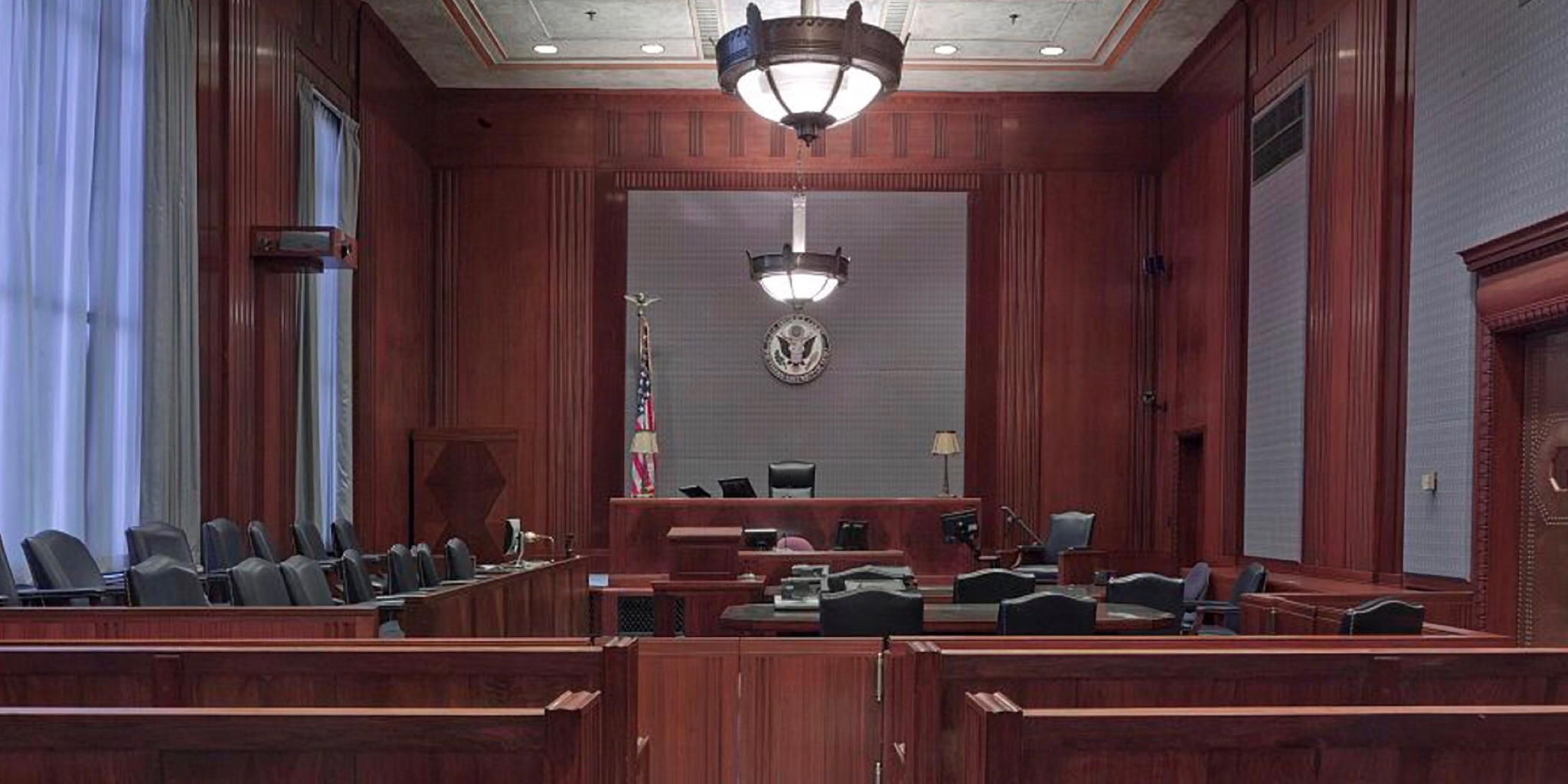 There is a temptation when we look back on figures in history to view them as a finished product; individuals who began their life’s journey in as prolific of a manner as the way they ended it. The Reformed tradition often gets this wrong when we look back on figures like John Calvin. We know of his incredible achievements, yet there is another side to John Calvin: a man who suffered much and caused sufferings for others, a man who got as many things wrong as he got right, a man who struggled with the sins of pride and poor temperament. I have learned much from Calvin’s works and his successes, but I’d like to suggest at least four lessons that we can all learn from some of his mistakes and failures in his early years of ministry.[1]
There is a temptation when we look back on figures in history to view them as a finished product; individuals who began their life’s journey in as prolific of a manner as the way they ended it. The Reformed tradition often gets this wrong when we look back on figures like John Calvin. We know of his incredible achievements, yet there is another side to John Calvin: a man who suffered much and caused sufferings for others, a man who got as many things wrong as he got right, a man who struggled with the sins of pride and poor temperament. I have learned much from Calvin’s works and his successes, but I’d like to suggest at least four lessons that we can all learn from some of his mistakes and failures in his early years of ministry.[1]
By 1536 John Calvin had begun his work of ministry in the city of Geneva, Switzerland. He showed much promise in his zeal and understanding of the Scriptures. By 1535 he already had a first edition of The Institutes printed, and it was a complete enigma to everyone how a twenty-five-year-old man who never had formal theological training could write such a magnificent work. Older pastors and Reformers were inclined to take interest in his success and training.
We have letters that were exchanged between at least two of his mentors: Martin Bucer and Simon Grynaeus. In these letters we find a furious and intemperate Calvin who made accusations of his mentors. Bucer’s response to Calvin was firm, and he told Calvin that everything he did was out of love. Calvin understood what Bucer was implying: for all of his theology, Calvin lacked love. Bucer’s rebuke crushed Calvin.
In a similar fashion, Simon Grynaeus wrote to Calvin and rebuked him for his rancid language toward other church leaders. Grynaeus pointed out Calvin’s arrogance, and told him he was too prideful over his education and superior intellect. Between these two men, Calvin was crushed by the weight of his own relational sins. His youth and immaturity brought out his lack of love, his arrogance, and his pride.
Lesson 1: Youth breeds immaturity. Speaking as a person in ministry who hasn’t yet passed the age of thirty, this is a lesson I don’t like to hear. Like Calvin, I have often committed the arrogant sin of making accusations toward older leaders in ministry that were simply a result of me not being able to see the full picture. Certainly no one should be despised for their youth (1 Tim. 4:12). Yet this doesn’t change the fact that youth and inexperience is fertile soil for pride and immaturity. Young Christians would be wise to give the proper weight to the insight and experience of older brothers and sisters in the faith.
Calvin’s pride and arrogance had not yet gotten the best of him. Along with William Farel (another Reformation leader in Geneva), they had entered into a conflict with a council in Berne (the capital of Switzerland) over the minor issue of liturgical rites that should be used in the worship of the church. Calvin soon began denouncing the Bernese Council from the pulpit, calling them the “council of the devil.” He was quickly labeled as a hot-headed troublemaker, especially after he and Farel began refusing communion rites to the whole city of Geneva. The Bernese Council ordered Calvin and Farel to leave the city within three days.
What happened next still astonishes me and breaks my heart. Calvin and Farel headed to Zurich, but stopped in Berne to try and make a deposition while they were there. The two men openly lied to the Council and presented a very tailored account of the conflict, claiming that they had never opposed the Bernese liturgical rites and that a conspiracy had been mounted against them. Calvin’s attempt to win over the Council by openly lying to them backfired, and his reputation was severely damaged.
Lesson 2: Words have the power to destroy. Gossip and envy are the greatest enemies of God’s people. There is no quicker way to tear down unity in the church than with our words. This was clearly the problem in the church James addressed in his epistle, as his rebukes over taming the tongue come just before his admonishment about the envy which was tearing apart the church (James 3:1-4:4). All it takes is saying one thing we shouldn’t have said, and then it is out there forever to wreak havoc on relationships and friendships. In Calvin’s case, his words both publicly and private brought disaster and ruin. Not only did his personal relationships and reputation suffer, but the broader church in Switzerland suffered as well. It is important for Christians to resolve never to speak ill of another, or we too will bring similar consequences on our life and in our churches. Gossip and slander are never worth it.
A synod arose in Zurich made up of the leading Swiss churchmen and reformers. Multiple issues were discussed at this synod, in particular an ongoing dispute with Luther over the Lord’s Supper. Calvin and Farel were also a subject of discussion, and it was to their shame when they realized that they were regarded as the problem in Geneva, not the victims. In the eyes of these leading reformers, they had committed the horrid sin of bringing discord and division to the church.
Lesson 3: Unity and charity have priority over winning an argument. In other words, we want to win people – not arguments. Calvin was learning a lesson that many evangelicals need to learn today: have unity in the majors, and charity in the minors. The way we dispute amongst ourselves about doctrinal disagreements still needs to reflect the kind of love and unity Jesus prayed for in the Garden (John 17:20-26).
By this point, Calvin was beginning to learn all of these lessons too. He had bruised pride and a shattered ego – and it showed. Calvin doubted his calling to serve the church and was hesitant to resume the work again. In one letter to another church leader he wrote, “For though when first I took it up I could discern the calling of God which held me fast and by which I consoled myself, now, on the contrary, I am in fear that I would tempt him if I were to resume so great a burden, which I have already felt so insupportable.” Calvin drifted and felt a loss of purpose or meaning. Over the next three-and-a-half years, he meditated on these lessons he had learned. By the time he returned to Geneva in 1541, he had grown in wisdom and maturity and in many ways became the winsome and pastoral leader we regard him as today.
Lesson 4: Growth doesn’t come without resistance. It’s just as true for us physically as it is spiritually. One of the repeated themes of the Bible is that the Lord uses pain and trial to refine us more into the image of Christ (Hebrews 12:3-17. 1 Peter 1:3-7). When we first become Christians, many of us walk around with a kind of spiritual swagger. Through trial and affliction, the Lord gives us a limp to remind us of our daily need for his grace. Don’t underestimate what God is doing in your difficult season.
[1] Material for this article was taken from Bruce Gordon’s biography, Calvin. Particularly, chapters five and six.
I have no formal education in training in how to debate well. The closest I come to having formal debate experience is years of failure from when I believed Facebook debates (“discussions” is what I used to call them) could actually create healthy discourse. I’ve also watched Jim Carrey’s Liar Liar probably one too many times, but I have a feeling that his portrayal of courtroom antics isn’t exactly true-to-life.
Fortunately, there is one debate concept that I have managed to pick up on over the years that has shaped how I engage in public discourse. That is this: there is a difference between making a negative argument or a positive argument. To put it another way, there is a difference between making a negative case against the position you disagree with and making a positive case for the position you hold. In order to make a complete and persuasive argument, you must be able to articulate both a negative and positive case. Otherwise your argument is incomplete and ineffective.
Unfortunately, I think this is a concept that many Christians need to learn (truth be told, I think the general consensus would be that Western society needs to learn this concept – but that is outside of the scope of this article!). Too often I find that when Christians engage publicly with other people and try to make a case for their views, they only do so by making a negative case against the position they disagree with. I rarely hear persuasive and positive arguments for the Christian faith. Many Christians are good at pointing out what they don’t like about other people’s views and positions; they’re not so good at positively articulating why their view or beliefs are better.
Friends, it is a very bitter tasting flavor of Christianity which can only make a case for itself by tearing down the views of others.
I’ve seen this play out not only when Christians engage non-Christians, but also when Christians engage other believers in areas where they happen to disagree. This sad reality then creates a Church where Christians are unable to engage in healthy disagreement and conversation because we’ve so negatively painted other views and positions. Nobody said we have to agree on every theological issue, but we do need to engage each other with love (John 17:20-26, Galatians 5:6). That means we need to be able to emphasize positive arguments for our positions, rather than focusing on what we think is wrong with other views.
Here are a few examples of the kinds of negative argument’s I’ve seen come from Christians the last few years:
- Christianity is right because your religion is wrong. This point is really a bucket for all kinds of poor arguments for Christianity I have heard. One example I have frequently heard is, “Christianity is true because prophets from all the other world religions are still dead!” Ok, true. But what is it about Jesus’ resurrection that actually makes a case for why I can and should trust him? What positive impact does Jesus being raised from the dead actually have on my life? Why does it matter?
I’ve also heard arguments such as, “Christianity is true because other worldviews don’t make proper sense of the world.” Maybe so. But how does Christianity make better sense out of the world?
I was recently sitting in a skeptics meeting where a popular Christian evangelist was brought up. Every single one of the skeptics I was meeting with an aversion to this evangelist because of what he represented to them: someone who couldn’t make a good case for Christianity and instead jumped around from subject to subject trying to tear apart the atheist position. Is this the kind of evangelism we want to be known for?
- Your church has poor worship because it’s not regulative enough. This is something I hear often in Reformed circles. We’re really good at critiquing seeker-sensitive mega-church worship, but we’re really terrible at articulating why the Regulative Principle of worship is both better and healthier in the life of the church.
- Your view of spiritual gifts is wrong because it’s dangerous. I’ve heard this come from either side of the continuationist/cessationist debate. Cessationists will often charge continuationists with dangerous manipulation and expressions of the sign gifts in churches. Continuationists accuse cessationists of “quenching the Spirit,” or imposing some kind of authoritarian rule from the pulpit. This only leads to stereotyping and misrepresentation of our brothers and sisters in Christ. We need to be able to lovingly and clearly articulate why our views are both more biblical and healthier for the life of God’s people today before we jump to negative conclusions about someone else’s views.
- The way you read the Bible is wrong and unhealthy. This argument can come in many forms. I’ve heard people attack the method of Bible reading (“You’re reading is too individualistic” or, “You’re not Christ-centered enough”, etc.). I’ve also heard attacks on the very concept of individual Bible reading (“Christians can’t interpret the Bible on their own” or, “Bible reading should only be done in community”, etc.). There may be truth in these criticisms. But you need to be able to make a positive case for how you want me to read the Bible rather than just making a case against how I do it.
These are just a selection of the kinds of things I commonly hear in Christian circles. Friends, if we want to see our non-Christian friends persuaded to the glories of our faith, then we need to be able to make a positive case for what we believe. And we need to start by being able to make a positive case for what we believe with each other. If we’re unable to do this together as the family of God, how will we ever do it well with those who are looking in from the outside?
In the beginning of Tim Keller’s book Making Sense of God, he longs for a culture where people are able to engage with each other in healthy and respectful discourse. He longs for the kind of place where “people who deeply differ nonetheless listen long and carefully before speaking. There people would avoid all strawmen and treat each other’s objections and doubts with respect and seriousness. They would stretch to understand the other side so well that their opponents could say, ‘you represent my position in a better and more compelling way that I can myself.’”
I too long for this kind of healthy discourse. One of the ways we’ll get there is if we can learn how to emphasize positive arguments before we use negative arguments in our discourse and conversation. Let’s grow in this together.
I walked onto my first shift in the hospital with a sense of fearful confidence. My blue shirt was freshly ironed, and my “New Volunteer” badge was hanging from my neck. It felt like a safety net in case anything went wrong.
Just days before, I had received my assignment: Child Life Services, Pediatric Oncology and Hematology. Up to that point, being around children who were wrestling to get free from death was only a distant idea. I’ve watched the show “Scrubs” 3 or 4 times over, but that can only prepare you so much. There are moments in a person’s life that shape and define them. I did not know that day I would experience one of those moments.
I stepped onto the unit and walked over to the patient board. At first I was happy – I saw that in just a few minutes a magician would be coming to entertain the kids. The fear in me wanted to wait to do anything until he got there. Maybe I can just disappear behind him today, after all he is a magician and it is my first day.
I knew that wasn’t what I was there for, so I set myself to the task of looking over the patient board. That’s when I was hit with a punch right to my sternum. The first patient on the list: 3-year-old. Female. Are you kidding me? Perhaps noticing a look of shock on my face, the nurse standing next to me looked over and said, “She’s been having a really rough morning and has been crying non-stop. There’s probably nothing you can do.”
Maybe not, but I wanted to try. I walked over to her door, squirting the hand sanitizer in my hands along the way (foam in, foam out). I knocked – no response. I slowly opened the door, and like a tidal wave I was hit by multiple forces all at the same time.
There she was on the bed, tears in her eyes. She had a look of sadness and confusion across her face. What can a 3-year-old possibly grasp in terms of what it means to have cancer? It took everything I had to repress the human instinct of shock and disbelief about what was playing out before me. What kind of world would be so cruel to allow this poor girl to be in so much pain?
Her father – perhaps thinking I was on the medical staff – rushed to the door with a huge sigh of simultaneous despair and relief. He had been waiting for someone to come and relieve him so he could go check on her food. I promised I would stay with her until he got back.
As I walked over to her bedside, I began to take it all in. There were tubes and wires hooked up to every limb of her body. She had those sticker fake-earrings on, highlighting the beauty and innocence of such a small child. Strands of her hair covered the bed.
The crying never stopped. I tried everything I could possibly think of. Noticing the sparkling glitter paint near her bedside, I even began to draw things on my face. It only brought a few seconds of relief. Eventually the poor child ran out of energy, and She laid down and quietly sobbed to herself. It was all I could do to just rub her back and pray for her silently as we waited for her dad to return.
As I was rubbing her back, I looked over to the nightstand and saw a book. I drew closer and saw that it was a book by a popular “health and wealth” preacher. This book promised that Jesus would heal you if you simply had strong enough faith. Rage welled up inside of me, followed by incredible sadness.
“Have strong enough faith, and you will be healed!” – that’s what they all say. But what happens when healing never comes? Well, the implication is obvious: your faith isn’t strong enough. Your daughter died, even though you believed? Where was your faith? You’ve failed her.
It is a repulsive and damnable teaching.
And yet, we are all prone to believe this to one degree or another. Our default setting as human beings is to believe that we can earn something from God or manipulate him to meet our needs. The self-help messages of our day which we see plastered all over social media tell us to look inside of ourselves for hope and strength. These messages only feed our default responses in times of great distress and sorrow.
Now here is the great dilemma: your faith – your strength – it will fail. I promise you. When the diagnosis comes, when the car accident happens, when you get that phone call – your faith will fail. Maybe not within the first hour, maybe not on the first day, maybe not even in the first week. But it will. We must learn how to turn to the promises of God rather than our own strength each and every day. The Psalmist said it well:
My flesh and my heart may fail,
but God is the strength of my heart and my portion forever. (Psalm 73:26)
Where will you turn when suffering and affliction comes? Who will you trust? The power and strength of your faith? Or the eternal and trustworthy promises of God?
Promises concerning who you are: loved (Deuteronomy 7:7-8, Jeremiah 31:3), adopted (Romans 8:15, Ephesians 1:5), chosen before time began (Ephesians 1:4).
Promises concerning whose who are: brothers and sisters of Christ, sons and daughters of God (Romans 8:16-17).
He knew you – therefore you are no accident. He chose you – therefore you are not a zero.
Todd Billings is a Christian Theologian who has been diagnosed with an incurable cancer. In his book Rejoicing in Lament, he recalls a sermon from one of his professors many years ago. The professor was reminding his students that their life is hidden with Christ in God (Colossians 3:3). The professor then said, “Remember that, please, when you’re only in your thirties or forties, or your fifties or sixties, and the doctor says it may not be benign.”
There is good news that our life is hidden with Christ in God. As Billings reminded me in his book, it’s not our job to write out the chapters of our lives nor to control God when we feel like we need him the most. Our job and highest act of faith is to be satisfied in knowing who and whose we are.
Dear friend, whom will you trust? Where will you turn?




